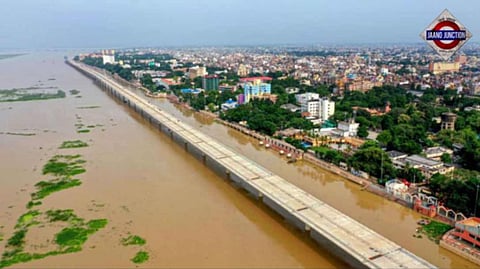

A new study by IPE-Global and Esri-India has revealed that over 85% of Indian districts are vulnerable to extreme climate events like floods, droughts, cyclones, and heat waves.
Alarmingly, 45% of these districts are experiencing a "swapping trend," where flood-prone areas are becoming drought-prone and vice versa.
The research, which analysed climate data from 1973 to 2023, found that the frequency and intensity of extreme weather events have increased four-fold in recent decades. The last decade alone saw a five-fold surge in climate extremes, highlighting the rapidly changing climate risk landscape across India.
"More than 1.47 billion Indians will be highly exposed to climate extremes by 2036," warned Abinash Mohanty, Head of Climate Change and Sustainability Practice at IPE Global and the study's author. He emphasised the need for "hyper-granular risk assessments" and the establishment of climate-risk observatories to safeguard the Indian economy.
The study identified several concerning trends:
- Eastern, northeastern, and southern zones of India are most prone to extreme flood events.
- Southern states like Andhra Pradesh, Tamil Nadu, and Karnataka are seeing a notable increase in drought conditions.
- Urban centers such as Bengaluru, Pune, Ahmedabad, Patna, and Prayagraj are witnessing maximum "swapping trends" between floods and droughts.
- Over 60% of districts in states like Bihar, Andhra Pradesh, Odisha, Gujarat, and Rajasthan are experiencing multiple extreme climate events.
Agendra Kumar, Managing Director of Esri India, stressed the importance of geographic information systems (GIS) in building climate resilience. "GIS technology, with advanced spatial analysis tools and the ability to integrate various data, enables a geographic science approach crucial for understanding climate projections and planning interventions," he stated.
The researchers recommend establishing a Climate Risk Observatory and an Infrastructure Climate Fund to support climate-resilient infrastructure and locally-led climate actions. These initiatives could help decision-makers at various levels navigate the evolving landscape of climate risks more effectively.
As world leaders prepare to gather for Climate Week NYC, this study points to the urgent need for comprehensive, localised climate risk assessments and targeted interventions to protect lives, livelihoods, and economies in India and beyond.
